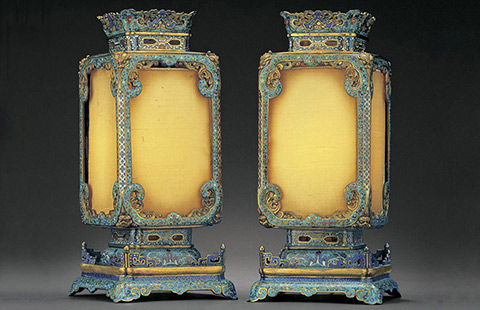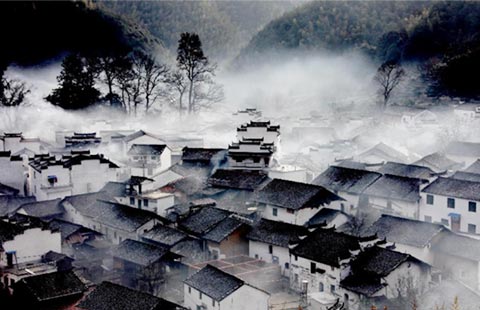Liberty gets a makeover
By Lin Qi ( China Daily ) Updated: 2015-03-17 08:01:55
 |
|
Zeng Fanzhi is presenting in Beijing his latest work, The Louvre Project, which is inspired by Eugene Delacroix's masterpiece, Liberty Leading the People. [Photo provided to China Daily] |
Aside from Messy Landscape, Zeng depicted the Goddess of Liberty in three other paintings. But he didn't enhance the figure. He instead drew her in simple lines.
"Again and again, I covered her with more lines. And finally, I transformed her from flesh into a statue," he says.
"In the last work, No. 4, I couldn't help but add some broken walls around her. No humans, no lives-maybe this is what the ultimate freedom should be."
Zeng once said he first saw Liberty Leading the People in 1985, rendered as a stamp-size image in a history textbook that transfixed him. The figure of the half-naked goddess in the center was quite a shock to conservative Chinese society at that time.
"I pondered why the painting appeals to people so much. Delacroix portrayed the fighters in a realistic manner. He instilled all his imagination in the goddess," he said in a talk before the Louvre show.
"Seemingly, she doesn't belong to the normal time and space of the others, but only exists in Delacroix's subject world of himself. The unreal and the real come across in a dramatic scenario that explodes with strong emotions."
Zeng studied oil painting at the Hubei Institute of Fine Arts. When he worked on his graduation paintings in 1990, Chinese painters were mainly interested in the realistic-genre painting-a result of the Russian Society of Traveling Art Exhibitions of the 19th century.
Zeng started to paint people at the Xiehe Hospital near his home in Wuhan, the provincial capital. In the Xihe Hospital Series, which made him famous, Zeng portrayed three scenes of medical staff treating patients. He departed from the realistic approach but injected his feelings into the work. He attributed the inspiration of these paintings to the enlightenment he found in Liberty Leading the People.
"Chinese art has changed violently over the past 20 years. I think Zeng remains quite stable and persistent, compared with many other artists. Invariably, he endeavors in the realm of painting, which is rare and praiseworthy," Helbling says.
A screen at the exhibition plays a documentary of the Louvre show. Visitors were asked to comment on Zeng's work. Some were fascinated by his bold treatment. Others didn't think it fit the room.
At the end of the video, Zeng says the visitors he wishes could see his work the most are the great masters who created the other paintings in the room.
"After the museum closes and the lights are turned off, maybe their souls will leave their works and judge the paintings on show," he says.
"I wonder how they will critique mine."Contact the writer at linqi@chinadaily.com.cn
If you go
11 am-6 pm, through March 22. ShanghART Beijing, 261 Caochangdi art zone, Chaoyang district. 010-6432-3202.
- Houston holds photo exhibition honoring Chinese immigrant laborers
- Bulgarian Exhibition marking 70th anniversary of WWII's end kicks off in Beijing
- Relic Exhibition of Han Dynasty big hit in Paris
- Art exhibition held at China Cultural Center in Berlin
- Americans amazed by Chinese art at Lunar New Year exhibition in New York
|
|
|
|
|
|
|
|




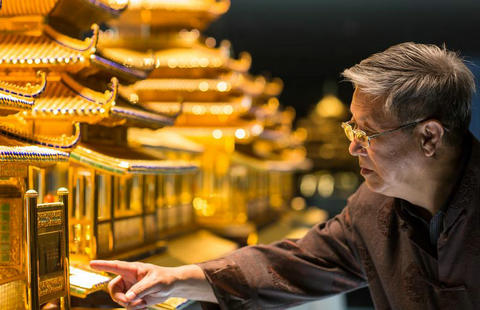

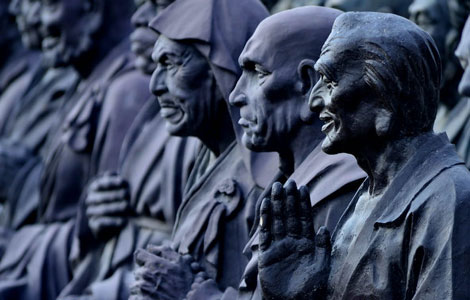
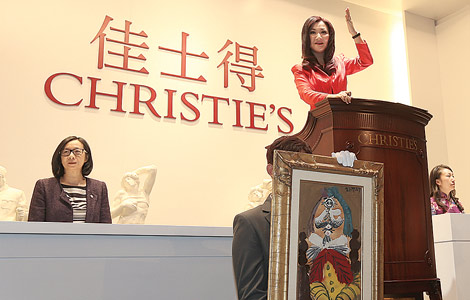










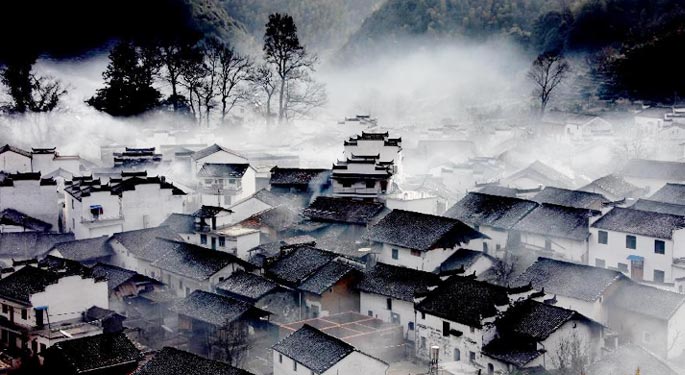




 Raymond Zhou:
Raymond Zhou: Pauline D Loh:
Pauline D Loh: Hot Pot
Hot Pot Eco China
Eco China China Dream
China Dream China Face
China Face




